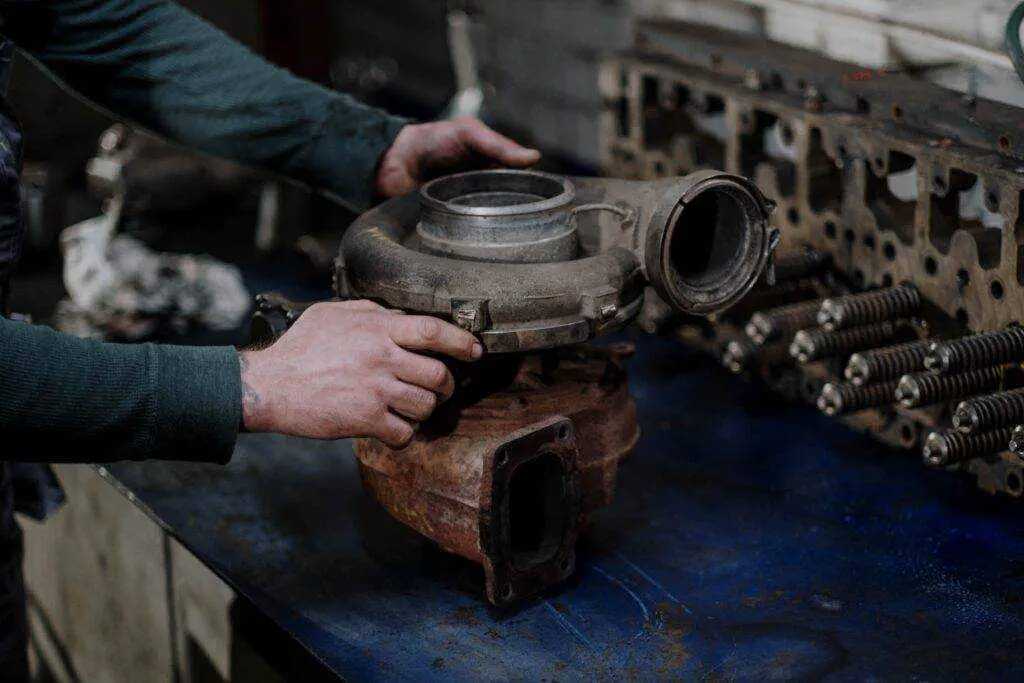What happens if you unplug the IAC valve?
The Idle Air Control (IAC) valve is a crucial component in modern vehicles, responsible for regulating the airflow into the engine during idling. Unplugging this vital valve can have severe consequences for your car’s performance and longevity. In this article, we’ll dive deep into the world of IAC valves, exploring the potential risks and ramifications of disconnecting it from your vehicle.
The IAC valve plays a crucial role in maintaining a smooth and efficient idle for your engine. By controlling the amount of air entering the combustion chamber, it ensures that the engine receives the correct air-fuel mixture, preventing stalling or excessive revving when the vehicle is stationary.
What is the Idle Air Control Valve (IACV) and its function?
The Idle Air Control Valve (IACV), also known as the Idle Air Control (IAC) valve, is a vital component in modern vehicles’ engine management systems. Its primary function is to regulate the amount of air entering the engine during idling conditions. By adjusting the airflow, the IACV helps maintain a consistent and stable idle speed, ensuring optimal fuel efficiency and preventing the engine from stalling or running too high.

Importance of maintaining the IACV for smooth engine performance
Proper maintenance and functioning of the IACV are essential for smooth engine performance. When the IACV is operating correctly, it ensures that the engine receives the right amount of air, allowing for a balanced air-fuel mixture and optimal combustion. This, in turn, translates into improved fuel efficiency, reduced emissions, and a smoother overall driving experience.
Effects of Unplugging the IAC Valve
While the IAC valve is designed to be a reliable and long-lasting component, unplugging it can have serious consequences for your vehicle’s performance and longevity.
Increased fuel consumption and longer warm-up time
When the IAC valve is unplugged, the engine’s ability to regulate airflow during idling is compromised. This can lead to an imbalance in the air-fuel mixture, resulting in increased fuel consumption and longer warm-up times. In extreme cases, the engine may struggle to idle at all, causing it to stall or run excessively high.
Irregular fuel-air mixture readings and engine strain
Without the IAC valve’s input, the engine’s computer (ECU) cannot accurately calculate the optimal air-fuel mixture. This can lead to irregular fuel-air mixture readings, causing the engine to work harder than necessary and potentially causing strain on various components, including pistons, valves, and spark plugs.
Damage to the Catalytic Converter and Other Engine Components
A malfunctioning or unplugged IAC valve can have a cascading effect on other critical engine components. For instance, an imbalanced air-fuel mixture can lead to excessive unburnt fuel entering the catalytic converter, potentially damaging it over time. Additionally, the increased strain on the engine from irregular fuel-air mixtures can accelerate the wear and tear on various internal components, potentially leading to costly repairs or replacements.
Disruption of the Engine Control Unit (ECU) Communication
The Engine Control Unit (ECU) relies on input from various sensors, including the IAC valve, to manage the engine’s performance. When the IAC valve is unplugged, it disrupts the communication between the valve and the ECU, preventing the computer from making necessary adjustments to maintain optimal engine operation.
Signs of a Failing IAC Valve
While unplugging the IAC valve can have immediate consequences, it’s essential to recognize the signs of a failing or malfunctioning valve to address the issue promptly.
Check Engine Light Indication and Rough Idle
One of the most common indicators of a failing IAC valve is the illumination of the “Check Engine” warning light on the dashboard, accompanied by a rough or irregular idle. This occurs because the valve is unable to maintain the proper air-fuel mixture, causing the engine to run erratically when idling.
Potential Risks of Driving with a Malfunctioning IAC Valve
Continuing to drive with a malfunctioning IAC valve can exacerbate the issue and potentially lead to more severe and costly repairs. Some of the risks associated with driving with a faulty IAC valve include:
- Reduced fuel efficiency
- Increased emissions and potential environmental hazards
- Accelerated wear and tear on engine components
- Potential catalytic converter failure
- Engine stalling or failure
Solutions for a Failing IAC Valve
If you suspect that your vehicle’s IAC valve is malfunctioning or has been unplugged, it’s crucial to seek professional assistance promptly.
Seeking Professional Assistance for Proper Diagnosis and Repair
While some DIY enthusiasts may be tempted to diagnose and repair the issue themselves, it’s generally recommended to seek the expertise of a professional mechanic. They have the necessary tools, knowledge, and experience to accurately diagnose the problem and perform the necessary repairs or replacements to restore your vehicle’s optimal performance.
Understanding the Importance of Maintaining the IAC Valve’s Functionality
Preventive maintenance and regular inspections can go a long way in ensuring the longevity and proper functioning of your vehicle’s IAC valve. By addressing potential issues early on, you can avoid more significant and costly repairs down the line.
Frequently Asked Questions
Can I drive with my IAC unplugged?
Driving with an unplugged IAC valve is not recommended, as it can lead to various engine performance issues, increased fuel consumption, and potential damage to other components. It’s best to have the valve properly reconnected and functioning correctly before operating the vehicle.
What are the symptoms of a clogged IAC valve?
Common symptoms of a clogged or malfunctioning IAC valve include rough idling, stalling, increased emissions, and reduced fuel efficiency. In some cases, the “Check Engine” light may also illuminate.
Can I remove the idle air control valve?
While it is possible to remove the IAC valve, it is not recommended, as the valve plays a crucial role in regulating the engine’s air-fuel mixture during idling. Removing the valve can lead to various engine performance issues and potential damage.
Can the IAC valve affect driving?
Yes, a malfunctioning IAC valve can affect driving performance. If the valve is not regulating the air-fuel mixture correctly, it can cause the engine to run irregularly, resulting in rough acceleration, stalling, or poor responsiveness.
Conclusion
Unplugging the IAC valve can have severe consequences for your vehicle’s performance and longevity. From increased fuel consumption and irregular engine behavior to potential damage to critical components like the catalytic converter, the risks associated with a malfunctioning or disconnected IAC valve should not be taken lightly.
By understanding the vital role this valve plays in your engine’s operation and recognizing the signs of potential issues, you can take proactive measures to address any problems before they escalate into more significant and costly repairs.
Remember, preventive maintenance and seeking professional assistance when needed are key to maintaining the optimal performance and longevity of your vehicle’s engine. Don’t let a seemingly minor issue like an unplugged IAC valve spiral into a major headache – address it promptly and keep your engine running smoothly for years to come.





